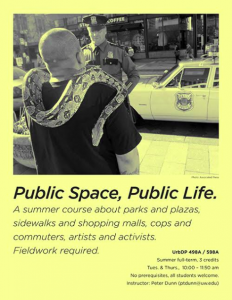ESRM 321: sustainable business course for non business majors (no prerequisites, hybrid online course, NW and I&S)?
ESRM 321, Finance & Accounting From a Sustainability Perspective, is a course that:
- Gives NW and I&S and 5 credits
- Has no prerequisites
- Is a hybrid online course, meaning there are some scheduled live online and in person events (mandatory in person exam on 8.16, 4:40-6:50 pm; six online quizzes starting at 6 pm; five live online Sustainability Performance Assessment (SPA) Mentoring Conferences, where the professor mentors students in doing corporate sustainability performance research.
Overview: Finance and Accounting. In ESRM 321, we explore two of the four primary business dimensions: finance and accounting. Finance refers to the flows and uses of money among individuals, businesses, non-profit organizations, and governments and associated processes, institutions, and markets. Accounting involves recording, classifying, summarizing, and interpreting business transactions to provide management and stakeholders with information about a company’s performance, liquidity, growth, value, etc. Sustainability refers to integrating environmental, social, and financial elements in order to meet the needs of people today without compromising Earth’s capacity to provide for future generations. Integrating these three is called the triple bottom line sustainability. We will explore the meaning and importance of sustainable business practices.
Course Goals. ESRM 321 has two goals, which are to provide a context for: 1) learning business concepts AND 2) hands on experience assessing corporate sustainability performance. The business learning objectives below in bold are achieved through listening to online recorded business lectures and reading the Nickels textbook while the sustainability learning objectives underlined below are achieved through assessing GRI indicators using sustainability report information.
Learning Objectives (at the end of this course, students should be able to do the following).
- – Explain finance, accounting, corporate social responsibility, and sustainability concepts
- – Summarize what money is, counterfeiting deterrence, and financial institutions
- – Explain the functions of the U.S. Federal Reserve System and its monetary policy tools
- – Describe stock markets, investing strategies, and socially responsible investing
- – Analyze financial statements (e.g., balance sheets, income statements)
- – Define corporate financial management
- – Describe Global Reporting Initiative (GRI) framework for sustainability reporting
- – Assess GRI economic and environment indicators to measure actual sustainability performance
- – Analyze real world sustainability performance using data in corporate sustainability reports
- – Summarize and interpret sustainability performance data
